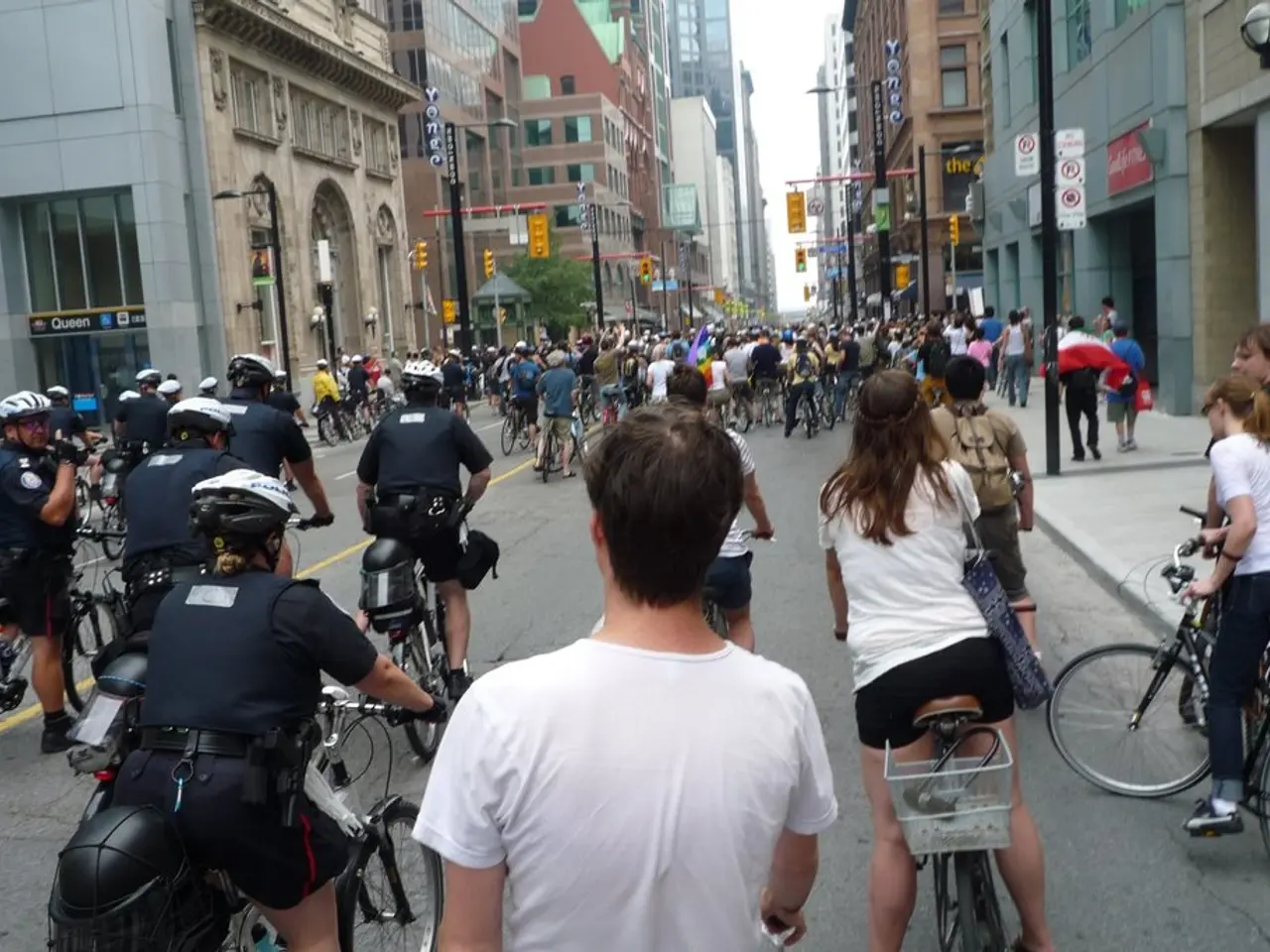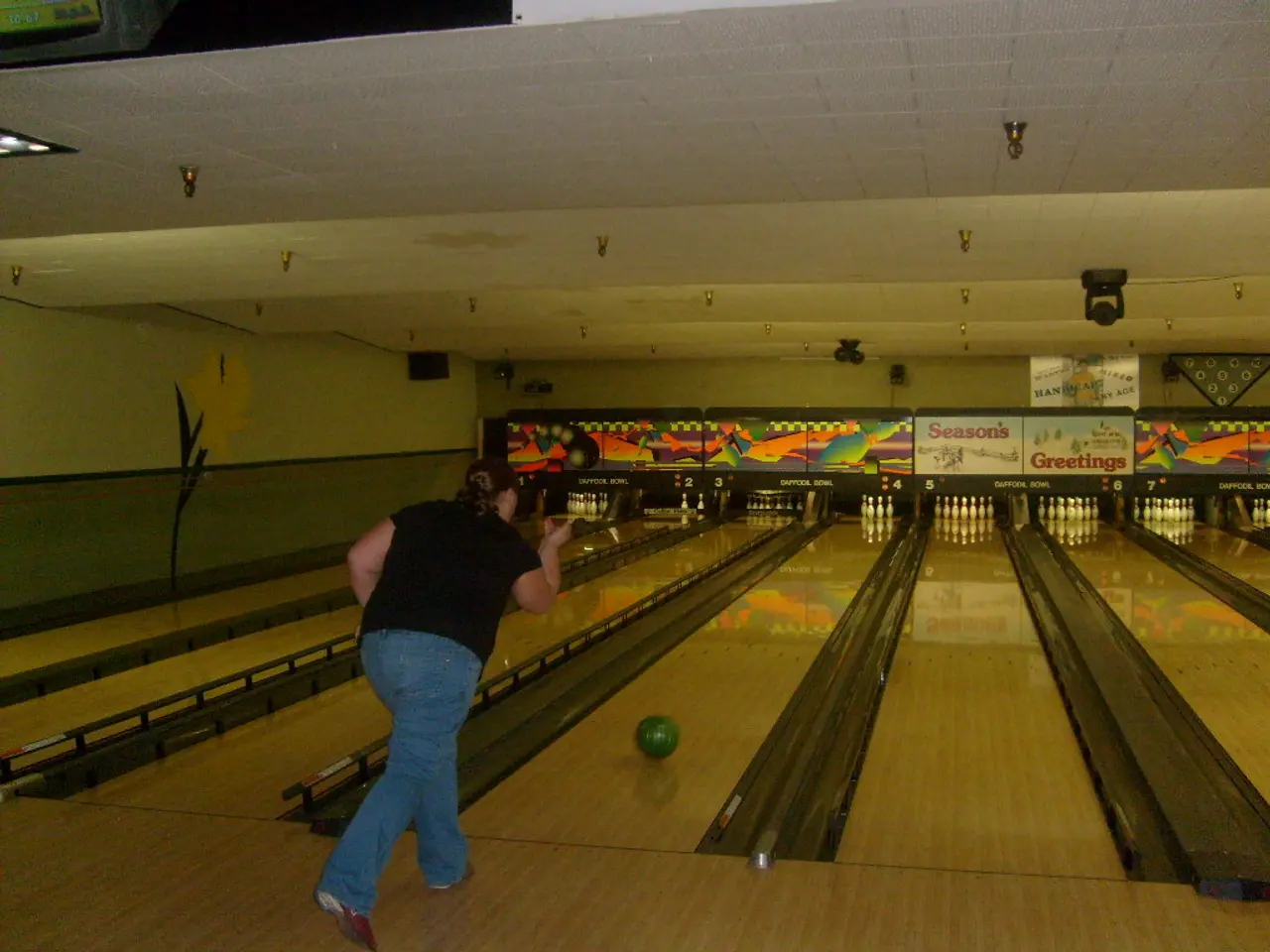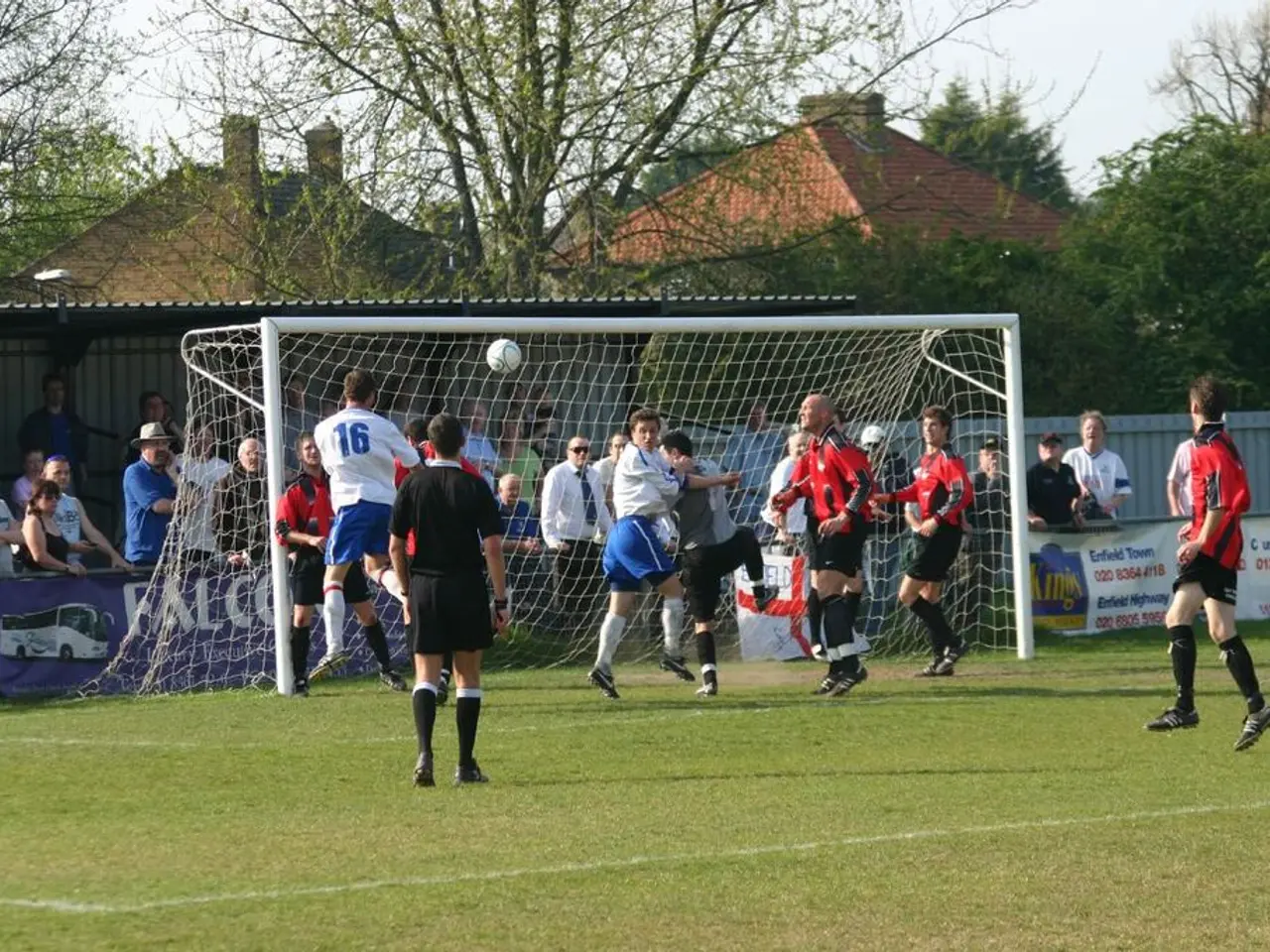Fun Overshadowed by Anxiety
Improving Cycling Conditions in Düsseldorf
Düsseldorf, Germany, is making significant strides in enhancing its cycling infrastructure, as evidenced by the city's recent investments and policy shifts. The city's efforts are aimed at creating a safer and more accessible urban environment for cyclists, responding to both cyclist needs and broader urban mobility goals.
According to Lerke Tyra, deputy chairperson of ADFC Düsseldorf, cycling in the city is perceived as stressful. However, the number of cyclists in Düsseldorf has increased by approximately 1,000 participants compared to 2018. This growth is partly attributed to the increased importance of cycling during the coronavirus pandemic, as indicated by Lerke Tyra.
One of the key factors in encouraging more people to cycle, according to Lerke Tyra, is the provision of seamless, safe, and comfortable bike lanes. Düsseldorf has made major investments in this area, with more than half of its streets now having a 30 km/h speed limit, which helps improve safety for cyclists and pedestrians. Additionally, there are new bike storage facilities, such as the installation of a second bike storage by the organization @fietshangar.
However, challenges remain. ADFC Düsseldorf calls for a constructive dialogue with politics and administration to further evaluate the cycling climate test. Ensuring continuous and interconnected cycling routes, addressing conflicts between cyclists, pedestrians, and motor vehicles, expanding secure bike parking, and managing the urban space to balance different forms of mobility safely are some of the common concerns that need to be addressed.
Councilor Christian Rütz (CDU) states that there is much to be done to make Düsseldorf the most bike-friendly major city. Rütz promises a focus on providing more future mobility through the expansion and construction of bike lanes in Düsseldorf. The black-green coalition in Düsseldorf also aims to accelerate the expansion and construction of bike lanes.
ADFC Düsseldorf emphasizes the need for bike lanes to be built as real commuter routes in Düsseldorf. The good availability of rental bikes, one-way streets opened for cyclists in the opposite direction, and the perception that 'Everyone cycles here, regardless of age' are positive aspects of cycling in Düsseldorf. However, concerns such as the acceptance as road users, sense of safety, and conflict-free coexistence with pedestrians persist.
Despite these challenges, Düsseldorf's infrastructure improvements, such as lowering speed limits and increasing bike storage capacity, aim to address some of these common concerns to foster safer and more comfortable cycling conditions. The city's ongoing investments and policy shifts clearly support improved cycling conditions aligned with feedback typical of cycling climate tests.
Sources: 1. ADFC Düsseldorf (2021). Cycling Climate Test 2021. Retrieved from https://www.adfc-duesseldorf.de/aktuelles/news/cycling-climate-test-2021/ 2. Stadt Düsseldorf (2021). Fahrradverkehr in Düsseldorf. Retrieved from https://www.stadt-duesseldorf.de/fahrrad/ 3. ADFC Düsseldorf (2021). Fahrradhangar Düsseldorf. Retrieved from https://www.adfc-duesseldorf.de/fahrradhangar-duesseldorf/
Sports enthusiasts will find Düsseldorf's ongoing improvements to its cycling infrastructure appealing, as the city is focusing on creating seamless, safe, and comfortable bike lanes to attract more cyclists. The increasing number of cyclists in Düsseldorf, partly due to the importance of cycling during the pandemic, demonstrates the growing interest in sports like cycling in the city.






